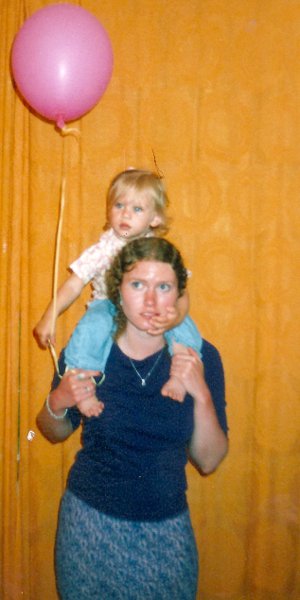Why it’s better to learn a language from children when abroad

In continuing the summer series of guest posts, today's is from Emily, who blogs over at The Babel Times. Her interesting suggestion is about how she learned German from children while living in Switzerland!
People often complain that you feel like you are being judged when with adults, and while this is simply not the case, it's true that at least we feel less under pressure when in front of children. That's why spending time with children (either through your work, or through family of friends) in some way can help you improve your language skills in a way that is interestingly different to how you would do it with adults.
With this in mind, I'll let Emily take the stage and describe her own story relevant to learning from kids! Over to you Emily!
For most language students, abroad and at home, interactions with native speakers are limited to a certain age group – usually people who are between about 18 and 45 years old. Unless you work as an au pair, it is unlikely that you will spend a lot of time with native-speaker kids. But I think kids are worth seeking out, because talking to and being around young children can help enormously when you are learning a language.
When I was 15, I spent a year abroad in Switzerland as an exchange student. I started out the year in a host family with two children who were about my age – one was 19, the other was 13. But things didn’t go so well with the first host family, and I moved in February. My second family also had two kids – they were 1 and 3 years old.
Perhaps I would have learned more from the kids in the first host family if things hadn’t been going sour from the beginning. I got along well with the 19-year-old girl, but she was busy with her friends and activities, and rarely home. I never felt like I had much in common with the 13-year-old, and didn’t speak with him much.
But what could I possibly have in common with a 3-year-old? And how would that help my language? Here are some things I discovered in talking with and hanging out with kids in Switzerland.
1. It’s less intimidating for adults (or teenagers) to talk to young kids in a foreign language than it is to talk to their peers
A 3-year-old is probably not going to make you feel stupid, no matter what you do.
Being with children allows adults to let go of their inhibitions – I’m thinking about inhibitions that would normally prevent adults from dancing, singing and generally running around and being silly. Adults feel less judged around children, and that means it is easier to just open your mouth in your new language without worrying about making a mistake.
As a self-conscious teen, I know I felt much more comfortable talking to a 3-year-old than to my classmates, and much less worried about making mistakes.
2. Kids don’t speak English
You are guaranteed to keep the conversation in your target language all the time when you talk with a 3-year-old. You can’t use any English words at all, because the kid won’t understand them, so if you don’t know how to say something, you have to find another way to say it or use body language. This is a great way to force you to stop thinking in English (or whatever your native language is) and start thinking in the target language.
3. Kids speak the local dialect
When I lived in Switzerland, I was really learning two languages: High German, which is the language that is spoken in Germany, in schools in Switzerland and in German language classes around the world, and Swiss German. Swiss German is quite different from High German – so much so that Germans can not understand it. The Swiss always speak High German at school, but in personal conversations they never use it.
Prior to changing host families I rarely, if ever, spoke the Swiss dialect of German. Most people would switch to High German when they spoke with me. But Swiss 3-year-olds don’t know High German yet, so I finally got a chance to have someone speak Swiss German with me.
Similarly, I didn’t feel ridiculous talking to her, so I started to speak Swiss German, too. Being able to speak this dialect was really key to starting to feel integrated in Switzerland, because without it, any conversation with more than one person was awkward, marked by repeated switching between Swiss German and High German.
Most places don’t have such an extreme difference between how people actually talk and how the language is taught, but almost everywhere does have some disconnect between casual and formal language. Kids don’t have that ‘I’m talking to a foreigner’ filter that makes them speak differently when talking to a non-native speaker. They talk to you in exactly the same way they talk to anyone else, and your language skills will be better for it.
As far as I know, among the exchange students who were in Switzerland that year with me, there was only one other girl who learned Swiss German. She also lived in a host family with young children.
4. Kids use simple vocabulary and sentence structures
Young children use the words that are used most frequently by their parents.
They don’t talk about complex philosophical theories. They don’t use complex or unusual grammar, either. Sure, not all of the vocabulary is useful to non-kid situations (diaper, bottle, spank). But in general, the words, phrases and sentence structures that you pick up from kids represent how most people talk, most of the time.
5. Kids don’t correct you very often
Have you ever had a language partner or teacher who insisted on correcting every single mistake you made? Kids don’t do that. They might not correct you at all. I think it is generally a good thing to have mistakes corrected, but getting into a ‘flow’ when you are initially learning how to speak is hard if you are interrupted too frequently. Talk to a kid and the flow will find you.
6. Kids are still learning – and you can learn with them
There’s also something to be learned from hanging out with kids and their parents. Parents are unconsciously teaching their children language every day. For example, while feeding a child a carrot, a parent might say:
“Do you want to eat a carrot? Do you like carrots? This is a carrot. You like carrots. Good job, you ate the carrot. The carrot is all gone.”
After listening to this exchange, if you didn’t know the word for carrot before, you have almost certainly figured it out. That’s why I think both the 3-year-old and the 1-year-old were helpful to my language skills in Switzerland – the 1-year-old couldn’t speak yet, but I constantly heard his parents talking to him in baby talk, and I learned a lot from it.
In addition, kids make mistakes in their own, native language. They mispronounce words and they misconjugate verbs. Their parents correct them. You get to learn from their mistakes as well as your own.
You’re unlikely to find a 3-year-old language partner who will speak to you on Skype, but take advantage of any opportunity you have to talk to young kids. Your language skills will take off if you do.
Well said Emily! Make sure to check out her site.



Social